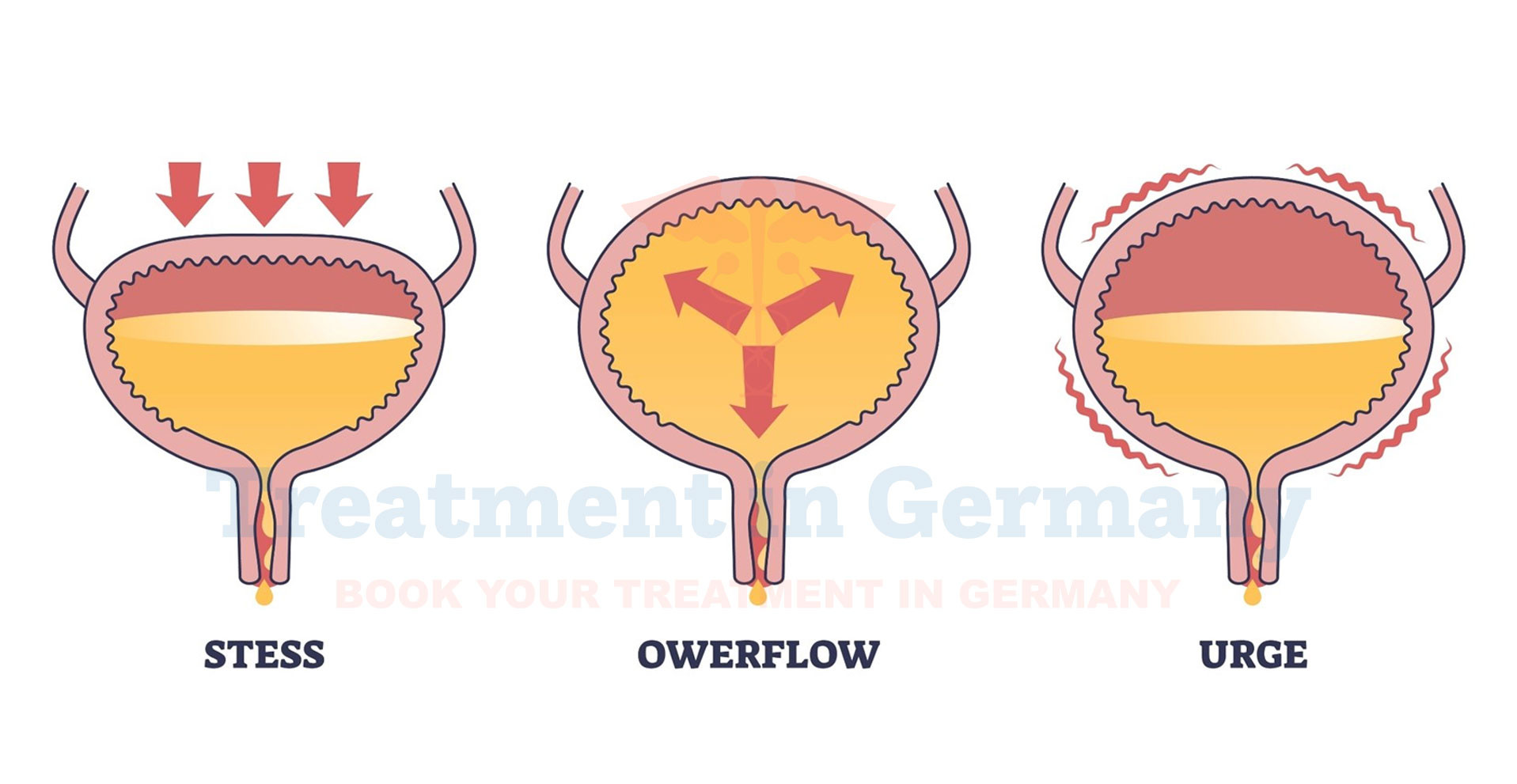What is Stress Urinary Incontinence?
Stress urinary incontinence (SUI) is a common condition characterized by the involuntary leakage of urine during activities that increase abdominal pressure, such as coughing, sneezing, laughing, or physical exercise.
This occurs when the muscles and tissues supporting the bladder become weakened or damaged, leading to reduced control over urination. SUI is particularly prevalent among women, especially those who have experienced childbirth, but it can also affect men and people of all ages.
Side Effects of Stress Urinary Incontinence
The primary side effect of Stress urinary incontinence is the unintended loss of urine, which can range from a small amount to a significant leakage. This can lead to several secondary issues:
- Emotional and Psychological Impact: Many individuals experience embarrassment, anxiety, or depression due to their symptoms, which can significantly affect their quality of life.
- Social and Lifestyle Limitations: Avoidance of social activities or physical exercise due to fear of leakage can lead to social isolation and reduced physical fitness.
- Skin Irritations: Frequent leakage can cause skin irritation or infections in the genital area.
How is Stress Urinary Incontinence Diagnosed?
Diagnosing Stress urinary incontinence typically involves a comprehensive evaluation by a healthcare provider, which may include:
- Medical History and Symptom Review: Discussing your symptoms, medical history, and lifestyle with your doctor.
- Physical Examination: This might include a pelvic examination to assess the strength of pelvic floor muscles.
- Urodynamic Testing: These tests measure how well the bladder and urethra are functioning, including how much urine the bladder can hold and how well it empties.
- Bladder Diary: Keeping a detailed record of fluid intake, urination patterns, and leakage incidents can provide valuable information for diagnosis.
Potential Treatment of Stress Urinary Incontinence
Treatment options for Stress urinary incontinence can be tailored to the severity of the condition and individual patient needs. In Germany, several effective treatment strategies are available:
Lifestyle and Behavioral Modifications:
- Pelvic Floor Exercises: Also known as Kegel exercises, these can help strengthen the pelvic muscles and improve control over urination.
- Bladder Training: This involves gradually increasing the time between urinations to train the bladder to hold more urine.
Medications: While there are no specific medications for SUI, some treatments can help manage symptoms or address contributing factors, such as hormone replacement therapy for post-menopausal women.
- Physical Therapy: Specialized pelvic floor physical therapy can provide additional support and techniques to improve muscle strength and coordination.
Surgical Options:
- Sling Procedures: These involve placing a mesh or tape under the urethra to support it and prevent leakage.
- Colposuspension: This procedure lifts and supports the bladder neck and urethra to reduce leakage.
- Autologous Fascial Sling: Using a patient’s own tissue to create support for the bladder and urethra.
Minimally Invasive Procedures:
- Injectable Bulking Agents: These are injected into the tissue around the urethra to help close the space and prevent leakage.
👉 Contact us for further information and receive a complimentary consultation.


.webp)
 (1).webp)

.webp)
 (1).webp)


.webp)
 (1).webp)

.webp)
 (1).webp)
